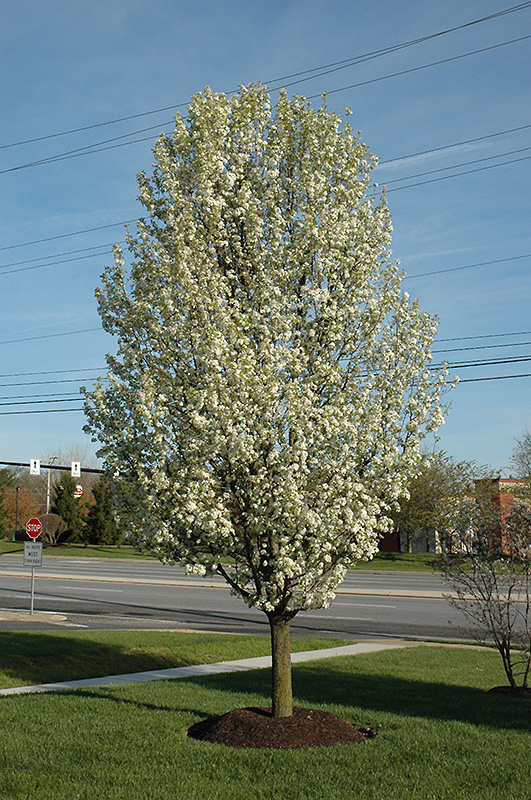Redspire Ornamental Pear
Pyrus calleryana 'Redspire'
Height: 35 feet
Spread: 25 feet
Sunlight:
![]()
Hardiness Zone: 4b
Other Names: Callery Pear
Description:
A broadly upright ornamental tree with a refined habit of growth, covered in large showy white flowers in spring as the foliage emerges with a reddish tinge followed by yellow-red fruit in fall along with a potent mix of yellow, red and purple fall colors
Ornamental Features
Redspire Ornamental Pear is clothed in stunning clusters of white flowers with purple anthers along the branches in mid spring before the leaves. It has emerald green deciduous foliage which emerges brick red in spring. The glossy heart-shaped leaves turn an outstanding crimson in the fall. The fruits are showy yellow pomes displayed in late summer.
Landscape Attributes
Redspire Ornamental Pear is a dense deciduous tree with a distinctive and refined pyramidal form. Its average texture blends into the landscape, but can be balanced by one or two finer or coarser trees or shrubs for an effective composition.
This is a high maintenance tree that will require regular care and upkeep, and is best pruned in late winter once the threat of extreme cold has passed. Gardeners should be aware of the following characteristic(s) that may warrant special consideration;
- Messy
- Disease
Redspire Ornamental Pear is recommended for the following landscape applications;
- Accent
- Shade
- Vertical Accent
Planting & Growing
Redspire Ornamental Pear will grow to be about 35 feet tall at maturity, with a spread of 25 feet. It has a low canopy with a typical clearance of 4 feet from the ground, and should not be planted underneath power lines. It grows at a fast rate, and under ideal conditions can be expected to live for 50 years or more.
This tree should only be grown in full sunlight. It prefers to grow in average to moist conditions, and shouldn't be allowed to dry out. It is not particular as to soil type or pH. It is highly tolerant of urban pollution and will even thrive in inner city environments. This is a selected variety of a species not originally from North America.

